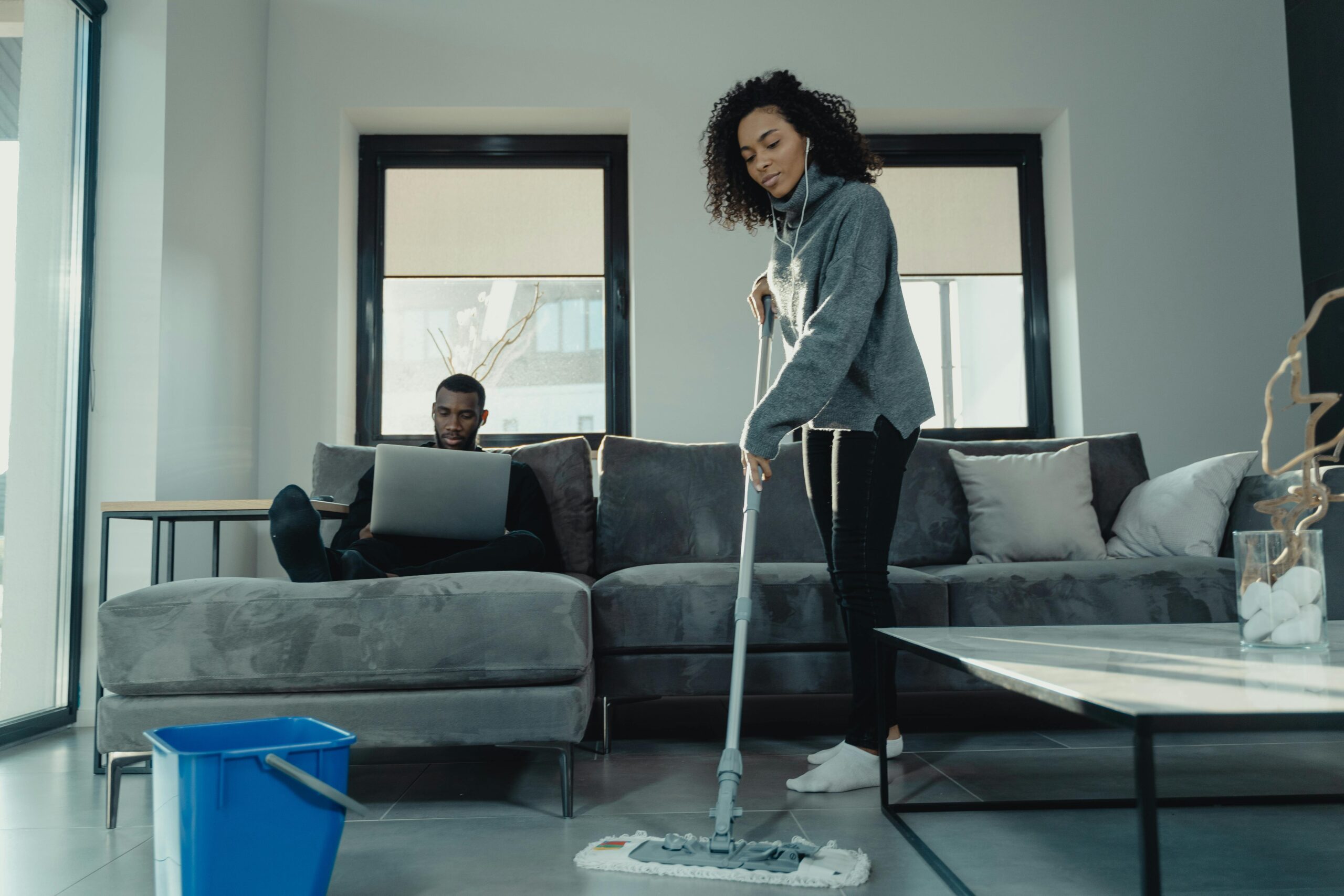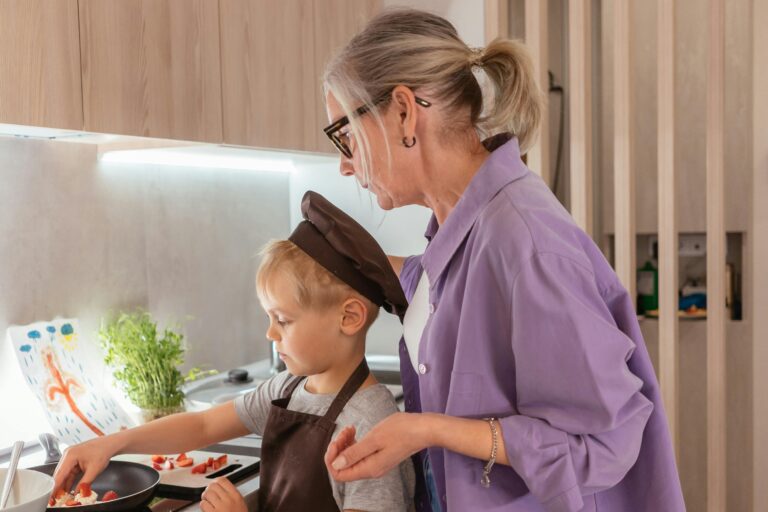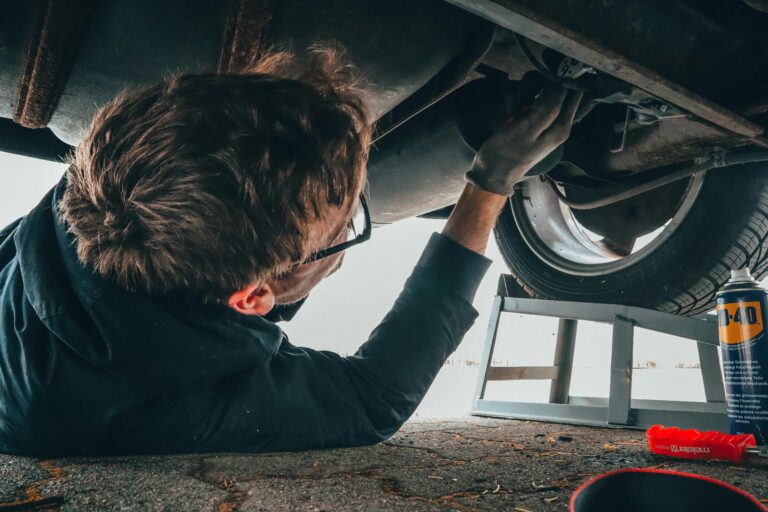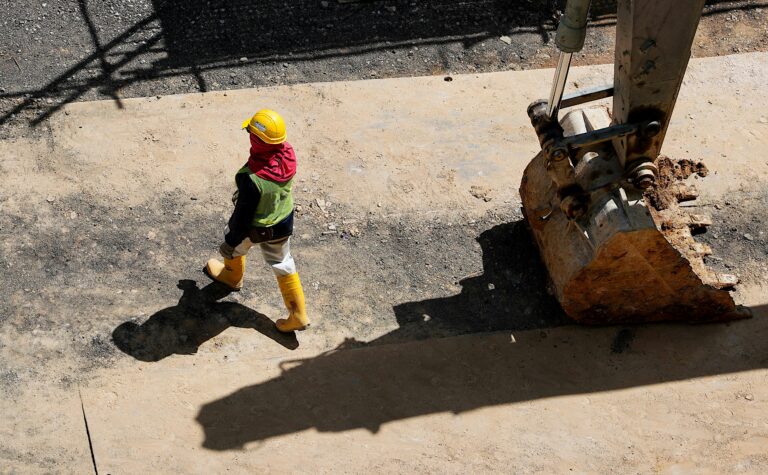Cleaning Jobs in Australia with Visa Sponsorship (2025 Guide)
Why Australia Needs Cleaners
Australia’s service economy runs on safe, hygienic spaces—hospitals operating 24/7, hotels turning over rooms hourly, airports moving millions, and schools that must stay open without outbreaks. Post-pandemic standards didn’t fade; they hardened into contracts with measurable infection-control outcomes, colour-coding protocols, and audit targets. Meanwhile, population growth, tourism recovery, and a wave of new commercial builds intensify demand for reliable cleaners who can combine speed with quality. Regional towns, mining camps, and remote health facilities are particularly short-staffed, which is why employers increasingly consider visa sponsorship for experienced candidates willing to relocate and work variable rosters.
Hiring managers now measure cleaners the way logistics teams measure drivers: on-time task completion, rework rates, client satisfaction, and audit scores. When those metrics slip, a facility risks non-compliance, lost contracts, and higher insurance exposure. That is expensive. If you can demonstrate consistent terminal cleans, safe chemical handling, and clear communication with nursing units or hotel supervisors, you reduce risk and create value. Arrive decision-ready with police checks, immunisations (where required), references, and a neat “compliance pack.” Sort your personal setup too: bank account, a low-fee credit card for transit and uniforms, and a plan to build an Australian credit score through on-time payments. Reliable, audit-ready cleaners don’t just keep buildings spotless—they keep operations moving.
Role Scope & Work Settings
“Cleaner” covers a spectrum of roles. Commercial teams service offices, universities, retail malls, and government sites, often after hours with strict scope-of-work checklists and service-level agreements. Healthcare and aged-care environments demand infection-control literacy—terminal cleans, isolation rooms, touch-point scheduling, and coordination with clinical staff. Hospitality means housekeeping, public areas, and back-of-house support for events; productivity is measured per room or per zone, and quality is tied to brand standards and online reviews that can affect revenue and even hotel insurance premiums.
Industrial, construction, and mining sites involve heavy-duty tasks: builders’ cleans, pressure washing, shutdown support, waste management, and compliance with permits and inductions. Transport hubs add airside or platform protocols, security vetting, and intense peak windows. Residential and strata work requires tactful client service, keys control, and reliable attendance. Across settings, the strongest performers combine speed, attention to detail, and documentation discipline. You’ll update logbooks, sign off checklists, escalate hazards, and sometimes photograph before/after. If you’re pursuing visa sponsorship, be explicit about settings you’ve worked in and outcomes you’ve delivered—audit pass rates, customer compliments, or reduced rework. Managers want staff who arrive ready to follow safe systems of work, meet contractual KPIs, and communicate clearly when priorities change. That profile reduces risk for clients, insurers, and the lawyers who draft facility contracts.
Visa Pathways (At a Glance)
For many candidates, the Temporary Skill Shortage route (TSS 482 visa) is the primary pathway when a sponsor can show genuine hiring difficulty. Strong performers often progress to permanent options such as the Employer Nomination Scheme (ENS 186) once tenure, performance, and business needs align. State and regional visas (190/491) and, in some areas, DAMA concessions may improve prospects for cleaners who commit to regional towns, mining camps, or remote health facilities with chronic vacancies. A practical strategy is to enter on a Working Holiday or Student visa (if eligible), build local references through consistent shifts, and then convert to sponsorship once you’ve demonstrated reliability and audit-ready work.
Whatever path you take, keep a decision-ready bundle: passport, skills evidence, police checks, immunisation records (flu/COVID if required), First Aid certificates, induction cards, and referee contacts. Policies evolve; confirm details with a registered migration agent or employment lawyers if your case involves dependants, multiple worksites, or FIFO rosters. Maintain continuous health insurance (OVHC) to satisfy conditions and reduce financial risk. Clarify cost sharing in writing—nomination fees, medicals, relocation, and uniforms—to avoid disputes. Align your start date with site inductions and security clearances so payroll, rosters, and compliance fall into place the day you arrive.
Occupation Mapping & Eligibility
Your duties must map to a nominated occupation under ANZSCO—typically Commercial Cleaner or Housekeeper, with Laundry Worker applicable for some roles. The key test is what you do every shift, not what you hope to do later. Build an evidence pack that mirrors those duties: checklists you’ve used, zones you’ve covered, chemicals handled, equipment operated (auto-scrubbers, burnishers, backpack vacs), and any infection-control training you’ve completed. References should mention throughput targets (rooms per shift, square metres per hour), quality audits, and safety performance.
If you’ve worked in hospitals or aged care, include infection-control skill sets, terminal clean experience, and communication with clinical staff. For construction sites, list White Card, inductions, and adherence to site rules. For airports or rail, note ASIC or rail safety training if held. Consistency matters: make sure job titles, dates, and responsibilities align across your resume, references, and any online profiles. Sponsors and their lawyers will compare your documents to the nominated occupation to minimise risk and protect contracts. Clear mapping also helps insurers assess workplace exposure. Keep language precise and practical—what you cleaned, how you cleaned it, how quality was checked, and how you escalated hazards. That clarity helps your nomination glide through internal reviews.
Typical Sponsors
Large facility management companies, national contract cleaners, public and private hospitals, aged-care providers, universities, councils, hotel chains, airports, resources camp operators, and regional employers all hire and sponsor when vacancies persist. Their common pain points are attendance, audit scores, and compliance. They need people who arrive on time, follow scope, maintain safety, and solve problems without drama. If you can run a zone method reliably, pass surprise audits, and handle peak periods calmly, you’re valuable.
Sponsors also appreciate stability. If you’re prepared to relocate to a regional centre or commit to FIFO rosters, say so early—regional roles see more sponsorship because local supply is limited. Facility managers and HR departments evaluate risk: your track record, the strength of your referees, your understanding of WHS, and whether your paperwork is tidy. The smoother your onboarding looks, the easier it is for finance teams, insurers, and lawyers to approve your position. Tailor your pitch to the sector: hospitals care about infection prevention and communication with nurses; hotels focus on room turnaround and guest ratings; airports care about security and airside protocols. Show that you get the business model and you’ll stand out.
Sponsor-Friendly Job Titles
Use titles that line up cleanly with duties and the nominated occupation: Commercial Cleaner, Industrial Cleaner, Environmental Services Assistant (health), Housekeeping Attendant, Room Attendant, Public Areas Attendant, Team Leader, Site Supervisor, or Cleaning Operations Coordinator. Avoid vague labels like “Hygiene Specialist” if your day-to-day is standard commercial cleaning; ambiguity creates friction in visa nominations. Pair every title with concrete outcomes: “average 22 rooms per shift at 96% audit score,” “reduced rework by 18% via color-coding compliance,” “zero sharps incidents over 12 months,” or “passed five client audits consecutively.”
If you’ve trained new staff or coordinated rosters, mention it—Team Leader or Supervisor titles can help sponsors justify salary levels and responsibilities when lawyers review contracts. Keep titles consistent across your resume, referee letters, and any digital footprint. This alignment reassures HR that you are who you say you are and helps insurers understand site risk. A clear, occupation-aligned title also prevents nomination amendments later, keeping your start date on track and your relocation plans intact. Clarity beats creativity in job titles—especially when compliance teams are watching.
Core Skills & Service Standards
Great cleaners deliver speed without sacrificing quality. That means mastering routine and periodic tasks—dusting high-touch surfaces, mopping with correct dilution, vacuuming with HEPA filtration, bathroom sanitisation, waste segregation, glass cleaning, and floor care using auto-scrubbers or burnishers. In healthcare and aged care, infection control is non-negotiable: colour-coding, contact times, terminal cleans, isolation protocols, and coordination with nursing leads. You’ll need eyes for detail and a system for not missing edges, vents, or fixtures that can drag audit scores down.
Service standards rest on documentation. Use checklists, update logbooks, and record defects with photos if the client allows. Escalate hazards promptly, from spills to broken dispensers. Communicate respectfully with clients and residents; a calm, professional tone resolves issues before they become complaints or insurance incidents. Time management matters—know your zone method and stick to it, but adjust when events or admissions change the plan. If you can explain what you’re doing and why—contact time, PPE selection, dilution ratios—you project competence and protect the client. That professionalism is exactly what sponsors want when they stand behind you in a visa nomination and present you to compliance auditors.
Tools, Chemicals & Equipment
Modern cleaning is tech-enabled. You’ll handle auto-scrubbers for large floors, burnishers for gloss, backpack vacuums with HEPA filters, steamers for grout and upholstery, and microfibre systems that reduce chemical use. In bigger sites, robotics and IoT sensors flag consumables or foot-traffic hotspots so supervisors can redeploy staff. Chemical safety is central: learn dilution control, SDS registers, dosers, and storage rules that protect you and the facility. The wrong mix can damage surfaces, lower audit scores, and create insurance headaches.
Keep tools in serviceable condition: inspect cords, switches, filters, squeegees, and batteries; log maintenance; and tag out unsafe gear. For hotels, a tidy housekeeping cart and labelled bottles signal standards to both guests and auditors. For healthcare, dedicated caddies per zone reduce cross-contamination risk. If you can operate equipment safely, clean it after use, and return it charged, you’ll earn trust. Mention brands or classes of machines you’ve used, but focus on outcomes—square metres cleaned per hour, reduced rework, quieter night operations. Tech literacy and chemical discipline show that you’re ready for sites where contracts, risk teams, and lawyers demand evidence of safe systems of work.
Safety, Licences & Compliance
Work Health & Safety (WHS) rules protect you and the client. Expect site inductions, PPE requirements, manual-handling refreshers, ladder safety, spill procedures, and sharps awareness in healthcare and public-area roles. Construction sites require a White Card and compliance with builder protocols; airports may require an ASIC pass; rail and port sites have their own inductions. Schools need Working With Children Checks; hospitals and aged care often require immunisations. Keep every certificate handy in your compliance pack so HR can lodge your visa swiftly.
Follow SDS guidance for each chemical, never decant without labels, and respect contact times. Report incidents immediately and document hazards—clear notes support investigations and protect insurance coverage. If you’re unsure about a task, ask your supervisor; guessing creates risk. Managers want staff who obey lockout tags, isolate wet zones, and communicate before re-opening areas. Those habits keep people safe and contracts secure. If any liability or overtime clause in your contract seems unclear, request plain-English wording or take independent advice from employment lawyers. Safe behaviour is professional behaviour, and it’s a core part of why sponsors back you.
Quality Systems & KPIs
Your work will be measured. Service-level agreements translate into checklists, frequencies, and response times. Supervisors run internal audits and client walk-throughs, often with scoring apps that track trend lines by zone or daypart. Typical KPIs include audit score, rework rate, complaint rate, completion within window, and consumables usage per area. In hotels, room-per-hour plus quality marks define success. In healthcare, terminal clean compliance and handover notes matter as much as speed.
To excel, treat the checklist as the floor, not the ceiling. Pre-read your shift notes, prepare your cart or caddy, and follow a consistent path that minimises back-tracking. Communicate early if a zone is blocked, escalated, or requires additional time. Photograph damage or pre-existing issues so finance and insurance discussions stay factual. Ask for feedback and track your personal metrics; improvements show initiative at review time. If you can raise audit scores while holding or improving productivity, you prove value that supports higher pay and a stronger visa case. Clients remember crews who protect their brand—and so do sponsors when choosing who to nominate.
Qualifications & RPL
While many cleaning jobs are entry-level, formal skills help. Certificate II or III in Cleaning Operations signals you understand safety, chemical handling, equipment care, and quality systems. Infection-control skill sets are prized in healthcare and aged care. Specialty tickets—confined space, EWP, high-pressure water jetting—unlock industrial work where pay is higher and rosters more predictable. If you have overseas experience, Recognition of Prior Learning can convert it into Australian credentials; choose an RTO with a clear evidence guide and gather references, photos, logs, and any previous certificates.
Keep learning visible on your resume and in your compliance pack. Short courses in customer service, basic computer literacy for EMR or audit apps, and safe-sharps protocols make you more versatile. Sponsors like candidates who close gaps proactively; it reduces onboarding time and reassures insurers and lawyers that governance is covered. If your target is a hospital or airport, ask which modules they value most and complete them before the interview. Training is not just a checkbox—it’s a signal you respect risk and quality, which is exactly what facility managers buy when they fund a visa nomination.
Pay, Shifts & Benefits
Pay usually follows the relevant Award, with penalty loadings for nights, weekends, and public holidays. Permanent roles accrue paid annual and personal leave; casual roles receive a loading instead of leave. Remote or FIFO assignments may include site allowances, travel time, and roster premiums. Many employers provide uniforms, PPE, laundry allowances, and paid induction. Healthcare and hotel groups sometimes offer discounted health insurance or accommodation. Always check superannuation contributions and how overtime is approved.
Assess the whole package, not just the hourly rate: roster stability, training, promotion pathways (Team Leader, Supervisor), and whether the employer sponsors visas for high-performing cleaners. Clarify who pays for checks, inductions, and transport between sites. If you’re relocating, ask about short-term housing or travel stipends. Manage your finances carefully: choose a low-fee credit card for initial expenses, keep spending disciplined, and build your credit score with on-time payments. When comparing offers, remember that predictable hours and fair supervisors often beat a marginally higher rate with chaotic scheduling. A stable, supportive environment makes it easier to perform and to progress.
Where to Find Sponsored Roles
Start with mainstream job boards—Seek, Indeed, LinkedIn—and use keywords like “cleaner visa sponsorship,” “482 sponsorship,” or “remote cleaning.” Check the careers pages of facility management giants, hospital networks, aged-care groups, hotel chains, airports, and resources camp operators. Regional job hubs and council sites often advertise persistent vacancies that rarely hit national boards. Recruiters specialising in facilities and hospitality can fast-track interviews if your compliance pack is ready.
Tailor each application to the sector: healthcare emphasises infection control and communication with clinical teams; hotels want room-turnover speed and brand standards; industrial sites care about permits and equipment handling. State your visa readiness, start date, and willingness to relocate in the opening paragraph so HR and their lawyers can triage quickly. Keep alerts on, respond within 24 hours, and track submissions in a simple spreadsheet. Decision-ready candidates—clear documents, strong referees, and audit results—get the first trial shifts. If you can offer flexible rosters and proven quality, your sponsorship odds climb sharply.
Application Toolkit
Aim for a crisp, two-page resume plus a compact compliance pack. Begin with a Skills Snapshot (infection control, auto-scrubbers, builders’ cleans, housekeeping), then list recent roles with outcomes: audit scores, rooms or square metres per shift, rework reductions, customer compliments. Add certificates (Certificate II/III, infection control, White Card, ASIC, First Aid) and checks. Your cover letter should solve the employer’s problem: “I raise audit scores without adding labour hours,” “I reduce complaints with proactive communication,” or “I can stabilise weekend rosters.”
Export your compliance pack as a single PDF: ID, visas or status, police checks, immunisations, inductions, licences, and referees. Use clear filenames and consistent dates—HR, insurers, and legal teams look for alignment. If applying to healthcare, include a short paragraph on terminal cleans and isolation protocols; for hotels, mention room-turnover numbers and brand standards; for industrial, list equipment and permits handled. Finally, tidy your digital footprint—basic professionalism on profiles matters when clients vet contractors. A clean, evidence-based application saves reviewers time, which is often the deciding factor in who gets sponsored.
How to Secure Sponsorship (Step-by-Step)
Target employers with obvious staffing pain: remote hospitals, regional hotels, camp operators, airports, and universities entering peak seasons. Reach out with a six-line message that includes your audit track record, key tickets, and earliest start date. Offer a paid trial shift with a clear scope—one isolation room and one ward restroom in healthcare; a ten-room block in hotels; or a builders’ clean zone on a construction site. After the trial, quantify your value: audit score achieved, zero rework, time saved, or compliments logged.
Negotiate the essentials in writing: visa subclass, cost sharing (medicals, nomination, uniforms), roster patterns, and relocation. Provide your compliance pack within 24–48 hours and maintain continuous health insurance. If a clause seems confusing, ask for plain-English terms or consult employment or migration lawyers. Sponsors want low-risk hires who communicate reliably, show up on time, and protect the client’s brand. Make it effortless to say “yes” by being organised, flexible, and transparent about availability. That combination converts trials into job offers and nominations.
Employer Sponsorship Basics (For Companies)
If you’re a facility manager considering sponsorship, map the role to the correct occupation and complete Labour Market Testing. Lodge a nomination that mirrors actual duties, hours, and pay aligned with the Award or enterprise agreement. Budget for the SAF levy and application fees, and build an onboarding plan—site inductions, chemical training, equipment checkouts, and shadowing. Clear duty statements, checklists, and escalation paths help insurers price risk and help lawyers draft robust contracts.
Operationally, invest in simple quality systems: mobile checklists, QR sign-offs, and regular audits. Track productivity, audit scores, and rework so you can measure ROI from the sponsored hire. Regional employers should package relocation support and predictable rosters to retain staff. Use a registered migration agent for complex cases and ensure payroll and rostering can evidence compliance. Sponsorship pays when vacancies are chronic: fewer agency shifts, stable teams, and higher client satisfaction. That stability protects revenue, strengthens renewals, and justifies further nominations when you expand.
Sector Snapshots
Hospitals & Aged Care: Infection control defines success—terminal cleans, isolation room protocols, PPE discipline, and respectful communication with clinical staff. Documentation protects patients and the provider’s reputation.
Hotels & Resorts: Speed plus brand standards—room-by-room checklists, attention to detail, and guest-facing professionalism. Peak seasons demand flexible rosters and impeccable time management.
Mining/Remote Camps: FIFO rosters, broad duties from kitchen and laundry areas to accommodation blocks. Reliability and safety awareness are crucial when supervisors oversee large, dispersed teams.
Education & Government: Security vetting, WWCC for schools, and predictable day-time rosters. Clean public spaces influence community perception and contract renewals.
Transport Hubs: Airside or platform protocols, security screenings, and tight windows during arrivals and departures. Incident response and rapid turnarounds are part of the job.
Across sectors, the same fundamentals win: safe chemical handling, methodical zone work, and audit-ready documentation. If your resume reflects the specific sector’s language and KPIs, sponsors can immediately see fit, which accelerates interview and visa decisions.
Green Cleaning & Sustainability
Sustainability is now a contract requirement, not a “nice to have.” Low-VOC chemistries, microfibre systems that cut water and chemical use, and correctly sized auto-scrubbers lower environmental impact while improving productivity. Waste segregation and reporting—general, recycling, organics, and clinical waste in hospitals—are increasingly audited. Many tenders award points for green certifications and emissions reporting from equipment fleets.
If you’ve used robotics or sensor-driven dispensers, explain how you reduced consumables without reducing quality. Document water-saving or energy-saving wins; insurers and risk teams often ask how operations reduce slip risks while meeting sustainability targets. Green cleaning also helps staff wellbeing—fewer headaches and skin issues—and can boost client satisfaction scores. Put sustainability on your resume as a measurable outcome: “cut chemical consumption 15% with microfibre and dosers,” “reduced water use 20% via auto-scrubber scheduling,” or “achieved building’s internal environmental audit pass on first attempt.” Sponsors want cleaners who keep contracts compliant today and competitive tomorrow; sustainable methods do both while supporting a strong business case for your visa.
Insurance, Legal & Finance (High-Value Section)
Understand what’s covered at work: public liability insurance protects the company if a spill causes a slip; some employers add professional indemnity insurance for specialised environments. Ask whether your tools or uniforms are covered and what the incident reporting process is. Read your contract carefully—probation, overtime, roster changes, and site transfers—then ask for plain-English explanations if anything feels unclear. Independent advice from employment or migration lawyers can prevent misunderstandings later.
On the personal side, keep continuous health insurance (OVHC) for visa compliance. Set up an Australian bank account early and choose a low-fee credit card for uniforms, transport, and relocation purchases. Build a healthy credit score with on-time payments and low utilisation; this helps when you need a phone plan or a vehicle for early shifts. Track deductible expenses—laundry allowance, protective footwear, basic equipment—so tax time is easier. Financial calm lets you focus on performance, which keeps your references strong and your sponsorship secure.
Interview & Trial Shift Preparation
Treat the interview as a mini shift. Bring proof of identity, certificates, and a simple checklist you use to manage a zone. Expect questions about chemical dilution, contact times, colour-coding, ladder safety, sharps protocols, and customer etiquette. Be ready to describe how you handle a spill, a blocked zone, or a complaint with calm, clear communication. If the employer offers a trial, confirm scope, timing, PPE, and who signs off. Work methodically: set up your cart, follow the route, clean to the checklist, and log anything that needs maintenance.
Narrate just enough to show awareness: “This product needs five minutes contact time; I’ll start at the far end and loop back.” Photograph defects if allowed. Finish with a quick handover and a clean workstation. Mention your availability, visa status, and willingness to take weekend or night shifts if required. Arrive early, dress neatly, and bring a small notebook. Managers remember candidates who are safe, fast, and pleasant to work with—those are the cleaners they’ll sponsor.
Common Reasons Sponsorship Fails
Sponsorship often stumbles on preventable issues: duties that don’t match the nominated occupation, vague references that don’t mention audits or scope, or mismatched dates across documents. Missing checks (police, WWCC, immunisations) or incomplete inductions delay start dates and frustrate sites under pressure. Safety red flags—poor chemical labelling, ignoring wet-floor controls, or skipping PPE—raise insurance and legal concerns. Slow responses to HR requests can cause employers to hire the next decision-ready candidate.
Mitigate by aligning your resume to the occupation and sector, compiling a tidy compliance pack, and confirming realistic start dates. If any contract clause is unclear, ask for plain-English wording or independent advice from lawyers before signing. Keep communication prompt and professional; send requested documents within 24–48 hours. Show that you understand audits, can follow checklists, and will protect the client’s brand. Decision-ready, safety-first cleaners are the ones sponsors back.
Timeline & Budget Planner
Plan your move like a project. Typical flow: job offer, Labour Market Testing, nomination, visa lodgement, decision, start, and site induction. Build a simple timeline with target dates and owners—HR, you, the recruiter—so nothing slips. Pre-book police checks and medicals if required, gather immunisation records, and store everything in a single cloud folder. Coordinate your start with security vetting and inductions for airports, hospitals, or construction sites.
Budget for visa and agent fees (if you use one), medicals, transport, short-term accommodation, uniforms, and any tickets you need (White Card, First Aid). Decide whether to bring equipment or rely on site gear; most employers supply tools, but personal items like comfortable footwear are worth investing in. Use a low-fee credit card for upfront costs and protect your credit score by paying on time. Share your timeline with HR so rosters, payroll, and access cards are ready when you land. Good planning turns a stressful move into a smooth start.
Templates & Resources (Appendix)
Sponsor Outreach (Email/DM)
“Hello [Manager], I’m an experienced Commercial Cleaner with healthcare and hotel experience. Recent results: 96–98% audit scores, zero sharps incidents, and reduced rework by 18% using colour-coding compliance. I’m ready to relocate and am available from [date]. I have police checks, immunisations, White Card, and First Aid, and I’m seeking a 482 visa pathway. Happy to complete a paid trial shift. May we schedule a quick call?”
Resume Bullet Bank
• Achieved 97% average audit across 6 months on a 20-storey office site.
• Completed 24 rooms/shift at 95% quality in peak season; guest compliments up 12%.
• Implemented dilution-control system; chemical spend down 14% without quality loss.
• Zero lost-time injuries; completed quarterly manual-handling refreshers.
Trial-Shift Checklist
Cart setup • PPE check • Zone method • Colour-coding • Contact times • Waste segregation • Logbook sign-off • Handover note.
Compliance Pack Index
ID/passport • police/WWCC/NDIS checks • immunisations • White Card/ASIC (if any) • First Aid • references • OVHC health insurance • visa status and availability.
If you want, I can convert this into a print-ready PDF and add a one-page checklist you can hand to employers during walk-ins.






